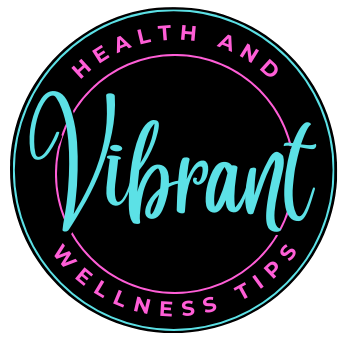Unlocking the Secret: 10 Hidden Clues You’re Not Getting Enough Nutrients

We all know that eating a balanced and nutrient-rich diet is essential for our overall health and well-being. But with busy schedules and convenience foods readily available, it's easy to overlook the importance of getting enough nutrients in our daily meals. The truth is, many of us may not even realize that we're not getting enough of certain nutrients. In this blog post, we will uncover 10 hidden clues that may indicate you're not getting enough nutrients and how to address them.
1. Constantly Craving Certain Foods
One of the first signs that you may not be getting enough nutrients is constant cravings for specific foods. This is especially common for those who have restrictive diets or are trying to lose weight. Your body is smart and will send signals when it's lacking in certain nutrients. For example, if you're constantly craving chocolate, it may be a sign that your body is deficient in magnesium. Instead of giving in to these cravings, try incorporating more nutrient-dense foods into your diet to fulfill those cravings.
2. Brittle Nails and Hair
Our hair and nails are direct indicators of our overall health. If you notice that your nails are brittle and easily breakable, or your hair is dry and lifeless, it may be a sign of nutrient deficiency. Specifically, biotin (vitamin B7) deficiency can cause weak nails and hair. Incorporating foods like eggs, avocados, and nuts into your diet can help increase your biotin intake and improve the health of your hair and nails.
3. Easily Bruised
Do you find yourself bruising easily, even from slight bumps or knocks? This could be a sign of a lack of vitamin C in your diet. Vitamin C is essential for the production of collagen, which helps keep our skin and blood vessels strong. Incorporating more citrus fruits, bell peppers, and leafy greens into your diet can help increase your vitamin C intake and improve your body's ability to heal and repair itself.
4. Fatigue and Low Energy
If you're constantly feeling tired and sluggish, it may be a sign that you're not getting enough iron in your diet. Iron is essential for carrying oxygen to our cells and tissues, and a deficiency can lead to fatigue and low energy levels. To increase your iron intake, try incorporating more leafy greens, legumes, and lean meats into your meals.
5. Digestive Issues
Our gut health is directly linked to our nutrient absorption. If you're experiencing frequent digestive issues such as bloating, constipation, or diarrhea, it may be a sign that you're not getting enough fiber in your diet. Fiber is crucial for keeping our digestive system running smoothly and for maintaining a healthy gut microbiome. Incorporating more whole grains, fruits, and vegetables into your meals can help increase your fiber intake and improve your digestive health.
6. Weak Immune System
Do you find yourself getting sick often or taking longer to recover from illnesses? This could be a sign that your immune system is not functioning at its best, which could be due to a lack of essential vitamins and minerals. Vitamin D, vitamin C, and zinc are all crucial for maintaining a strong immune system. Incorporating foods like fatty fish, citrus fruits, and nuts into your diet can help boost your intake of these nutrients.
7. Changes in Mood or Mental Health
Our mental health is closely linked to our nutrient intake. Deficiencies in certain vitamins and minerals can lead to changes in mood, increased anxiety, and even depression. Omega-3 fatty acids, found in fatty fish and nuts, are essential for brain health and can help improve symptoms of anxiety and depression. Additionally, B vitamins, especially folate and B12, play a crucial role in maintaining mental health. Incorporating more leafy greens, legumes, and lean meats into your diet can help increase your intake of these important nutrients.
8. Slow Wound Healing
If you notice that your cuts and scrapes are taking longer than usual to heal, it may be a sign that you're not getting enough protein in your diet. Protein is essential for tissue repair and wound healing. Incorporating more lean meats, dairy, and plant-based proteins into your meals can help increase your protein intake and improve your body's ability to heal itself.
9. Muscle Weakness
Feeling weak and having difficulty performing physical activities could be a sign of a lack of potassium in your diet. Potassium is an electrolyte that helps regulate muscle contractions and is crucial for maintaining strong muscles. Incorporating more potassium-rich foods like bananas, sweet potatoes, and leafy greens into your meals can help increase your intake of this vital nutrient.
10. Dental Issues
Our teeth and gums also need a variety of nutrients to stay healthy. A lack of calcium and vitamin D can lead to weak and brittle teeth, while a lack of vitamin C can cause gum disease. Incorporating more dairy, leafy greens, and citrus fruits into your diet can help increase your intake of these essential nutrients and improve your dental health.
In conclusion, our bodies are constantly sending us signals when we're not getting enough nutrients. It's essential to pay attention to these clues and make changes to our diets to ensure we're getting the proper nutrients our bodies need to function at their best. By incorporating a variety of whole, nutrient-dense foods into our meals, we can unlock the secret to optimal health and well-being.
